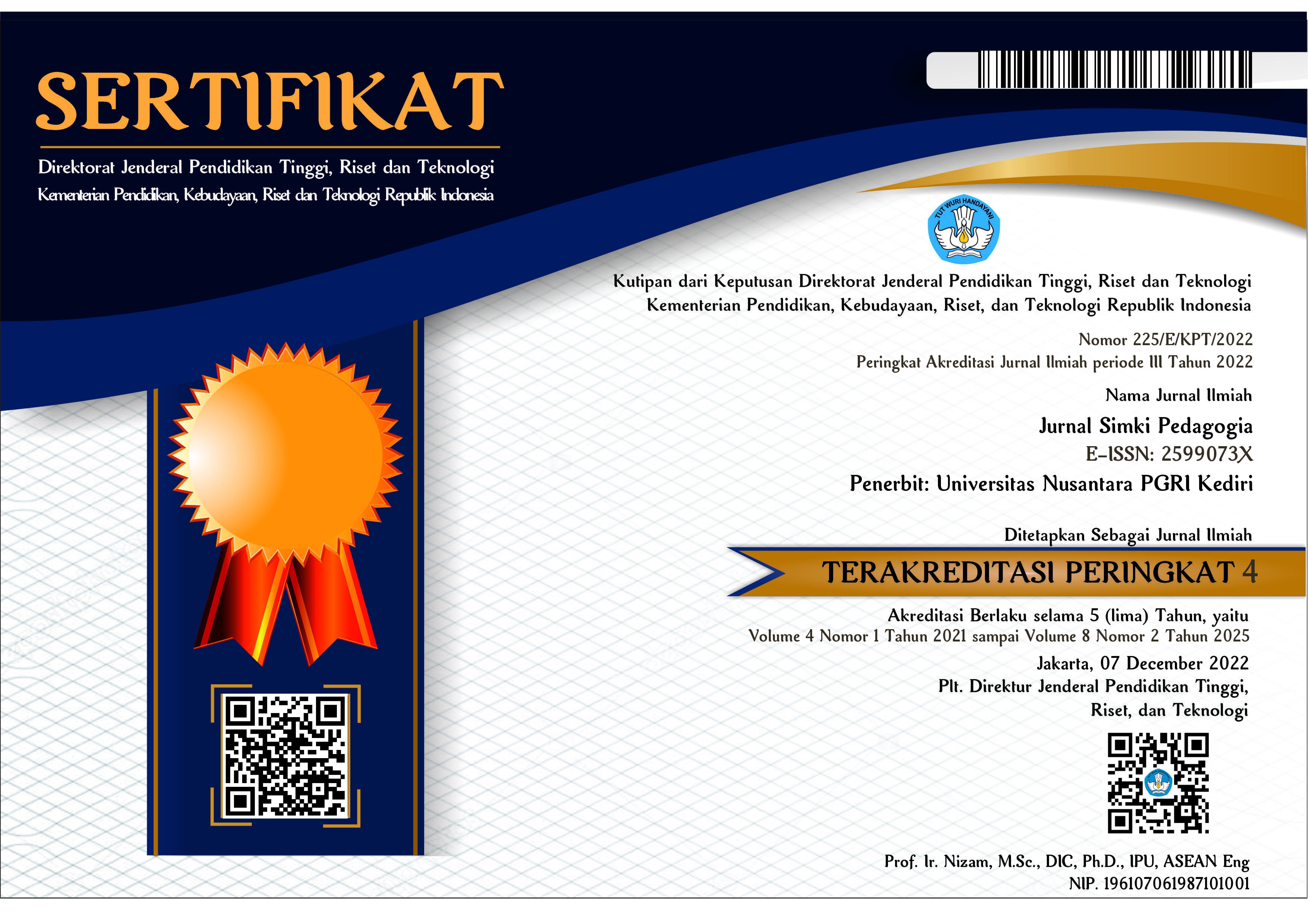Membentuk Karakter dan Kesadaran Lingkungan melalui Pendidikan Agama Hindu
Tantangan dan Upaya Pengembangan di Era Globalisasi
 Abstract views: 736
,
Abstract views: 736
,
 PDF (Bahasa Indonesia) downloads: 716
PDF (Bahasa Indonesia) downloads: 716
Abstract
The aim of this research is to find out the teachings that shape character and environmental awareness in Hindu religious teachings. This research uses a qualitative method with a case study approach. The research results reveal that Hindu education provides a solid foundation for people to understand and absorb the teachings of Hinduism in depth. This includes understanding philosophical concepts such as karma (the law of cause and effect), dharma (moral obligation), and moksha (spiritual liberation), as well as various other teachings that help people find the path to perfection. In addition, Hindu religious education encourages spiritual practices such as worship, meditation, and maintaining balance between body, soul, and mind. It helps people grow in positive traits such as patience, wisdom, and inner calm, which are important components of character development. Hindu religious education is very important to instill a sense of love and appreciation in children. Classical Hindu books provide important lessons about the relationship between humans and the universe. Thus, Hindu religious education can be an important pillar in forming a young generation who is ethical, virtuous and cares about the environment. However, to ensure that Hindu religious education is effective in facing the challenges of the times and has a greater positive impact on society as a whole, comprehensive improvement and improvement efforts are needed.
Downloads
References
Bakti, I. D. (2016). Protecting Hindu Values in the Era of Globalisation through Education. International Journal of Religion & Spirituality, 23(2), 45-61. http://dx.doi.org/10.5373/JARDCS/V12I6/S20201087
Devi, S. (2019). The Impact of Hindu Religious Education on Students' Character Development. Journal of Religion and Education, 12(1), 45-57.
Dewi, N. K. K., & Sudarsana, I. K. (2018). Strategi Pembelajaran Pendidikan Agama Hindu Dalam Membentuk Karakter Siswa. Cetta: Jurnal Ilmu Pendidikan, 1(3), 259-267. https://jayapanguspress.penerbit.org/index.php/cetta/article/view/66
Giri, P. (2004). Teaching Wisdom from Hindu Scriptures. Journal of Hindu Studies, 3(1), 55-71.
Martini, N. L. A., & Asli, L. (2023). Fostering Self-acceptance in Adolescents Through Regular Practice of Surya Namaskara Yoga. International Journal of Multidisciplinary Sciences, 1(3), 333-345. https://doi.org/10.37329/ijms.v1i3.2273
Mishra, P. (2015). Hinduism and Environmental Sustainability. Journal of Hindu Studies, 8(2), 125-140.
Pudja, G. (2019). Misinformation about Hinduism on the Internet: Problems and Solutions. Journal of Religion and Media Studies, 3(1), 120-140.
Sanjaya, P., & Juliana, W. (2023). Internalisasi Ajaran Agama Hindu Dalam Pendidikan Karakter di SMPN 7 Singaraja. Cetta: Jurnal Ilmu Pendidikan, 6(4), 804-816. https://doi.org/10.37329/cetta.v6i4.2758
Sharma, R. (2018). Adapting Hinduism Education to the Age of Technology and Globalisation. Asian Journal of Religion, 2(1), 55-65.
Subramaniam, T. (2017). Challenges Facing Hindu Religious Education Teachers in Schools. International Journal of Religion & Education, 5(2), 35-45.
Sudiarta, I. K., & Pitriani, N. R. V. (2023). The Application of Problem-Based Learning Model to Improve Learning Outcomes of Hindu Religious and Character (Budi Pekerti) Education of Fifth-Grade Students at SD Mahardika. International Journal of Multidisciplinary Sciences, 1(4), 394-402. https://doi.org/10.37329/ijms.v1i4.2365
Vidyalankar, S. (2010). Goals and Methods of Hindu Religious Education. Journal of Religion and Education, 8(2), 15-35.
Widana, I. W. (2017). Issues in Implementing Hindu Religious Education in Schools. Journal of Hindu-Buddhist Studies, 22(2), 77-92.
Copyright (c) 2024 I Ketut Sudarsana, Ni Luh Putu Liyana Andriyani

This work is licensed under a Creative Commons Attribution 4.0 International License.

Jurnal Simki Pedagogia : https://jiped.org/index.php/JSP/index is licensed under a Creative Commons Attribution 4.0 International License.
















